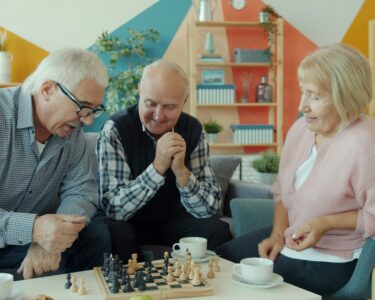The self-help industrial complex wants you to believe you’re one vision board away from your dream life. Just manifest it. Design it. Choose your hard. But when you’re working two jobs to make rent, or dealing with chronic illness, or navigating systemic barriers that no amount of positive thinking can dissolve—this advice starts to feel less like empowerment and more like gaslighting.
So what’s the truth? Can we actually design our lives, or is this just another way to blame people for circumstances beyond their control?
The Seductive Promise of Total Control
There’s something intoxicating about the idea that we’re the architects of our existence. It appeals to our desire for agency, for meaning, for the belief that our choices matter. And to be fair, they do matter—just not in the sweeping, deterministic way that Instagram infographics suggest.
The “design your life” narrative often operates on a few unstated assumptions:
- That everyone starts from roughly the same baseline
- That the primary obstacles are internal (limiting beliefs, lack of discipline)
- That external circumstances are either irrelevant or easily overcome with the right mindset
- That if you’re not living your ideal life, you simply haven’t wanted it badly enough
This is where it crosses into toxic positivity territory. It takes the genuine truth that mindset and choices influence outcomes, then inflates it into a totalizing worldview that erases structural inequality, random chance, and the basic unfairness of existence.
What Actually IS Within Your Control?
Here’s the uncomfortable middle ground: You have more agency than learned helplessness would suggest, but far less than the life-design gurus promise.
You can influence:
- How you respond to circumstances (even if you can’t control the circumstances themselves)
- What you do with the resources you have (however limited)
- Where you direct your attention and energy
- What you’re willing to risk or sacrifice for change
- The small, iterative decisions that compound over time
You cannot control:
- Where and to whom you were born
- Major economic forces, pandemics, or societal upheaval
- Other people’s choices that affect you
- Genetics, random illness, or accidents
- The fact that timing and luck matter enormously
The real question isn’t “Can I design my ideal life?” but rather “What can I actually shape within the constraints I didn’t choose?”
The Problem With “Ideal”
Maybe the issue is the word “ideal” itself. An ideal life implies some perfect endpoint, a finished product you can achieve if you just optimize hard enough. But this framing creates several problems.
First, it sets you up for perpetual dissatisfaction. There’s always a gap between where you are and where you “should” be, which the wellness industry is happy to monetize with courses, coaches, and content promising to bridge that gap.
Second, it ignores that what feels ideal changes. The life you designed at 25 might feel suffocating at 35. Your values shift. Your body changes. The world evolves. Rigid attachment to a specific vision can actually prevent you from adapting to what would serve you better.
Third, it often conflates “ideal” with “comfortable” or “successful by conventional metrics.” But some of the most meaningful lives involve significant discomfort, trade-offs, and choices that look incomprehensible from the outside.
A Less Marketable Truth
You can’t design your life like an architect designs a building, with precise specifications and guaranteed outcomes. But you can:
Navigate deliberately. Make conscious choices about what you prioritize, even when all options involve compromise. This isn’t the same as getting everything you want, but it’s different from passively accepting whatever happens.
Experiment within constraints. You might not be able to quit your job tomorrow, but you could test side projects on weekends. You might not be able to move across the country, but you could reshape your local environment. Small experiments accumulate.
Adjust your definition of success. If your “ideal life” requires winning a genetic lottery, a economic lottery, or both, you’re setting yourself up for bitterness. But if you can find meaning, connection, and moments of genuine satisfaction within your actual circumstances, that’s not settling—it’s wisdom.
Acknowledge what you can’t control without becoming paralyzed by it. Yes, structural barriers are real. Yes, luck matters. Yes, some people start miles ahead. And also: within whatever hand you’re dealt, there are still choices. Both things are true.
Question who benefits from your particular vision. Sometimes our “ideal life” is just internalized capitalism or social media aesthetics. Who’s selling you this dream, and why?
The Alternative to Toxic Positivity Isn’t Fatalism
Rejecting the “you can design your ideal life” narrative doesn’t mean embracing hopelessness. It means developing a more sophisticated understanding of agency—one that holds space for both constraint and choice, both circumstance and response.
It means recognizing that some changes require collective action, not just individual optimization. That systemic problems need systemic solutions. That sometimes the most powerful thing you can design isn’t your life but your ability to adapt, to find meaning in unexpected places, to build something worthwhile within limitations.
The most honest version might be: You can’t design your ideal life, but you can make thousands of small decisions that shift the probability of certain outcomes. You can cultivate qualities that help you navigate uncertainty. You can create pockets of agency within circumstances you didn’t choose.
That’s less catchy than “design your dream life in five steps.” It won’t sell as many courses or motivational journals. But it might actually be true.
And perhaps that’s enough—not an ideal life, but a real one. Not perfect control, but meaningful influence. Not a finished design, but an ongoing improvisation that honors both your power and your limits.






